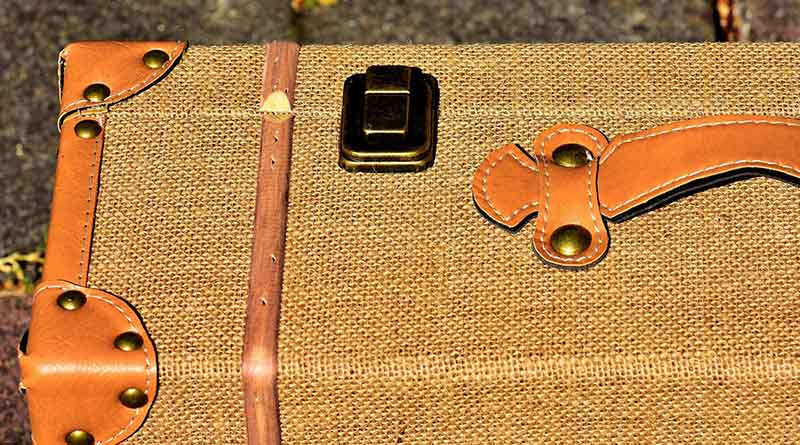Angela Williams flew from Washington to Atlanta for a funeral this summer. But during the trip, a Spirit Airlines baggage handler created another casualty: her new suitcase. Now she wants to know: Will Spirit ever pay for the damaged luggage?
Williams filed a claim — and waited. Then, instead of reimbursing her for the damage, Spirit sent her a $50 flight voucher. Was that enough compensation?
Damaged luggage is maddening. That’s because:
- Federal regulations about damaged baggage are vague. So are airline promises to fix any damaged bags.
- The process of filing a claim and receiving compensation is often confusing.
- Navigating the process requires a lot of forethought — and patience. (But not too much patience.)
We get a fair number of damaged luggage cases here at Elliott Advocacy. I also publish a complete guide to finding lost luggage.
When readers file a claim, they often find themselves sucked into a confusing world. So let’s cut through the red tape and find out what Spirit should have done with Williams’ luggage.
But before we go there, let’s find out what Spirit did.
What happened to her luggage?
Williams flew to Atlanta in early June for the funeral. When she retrieved the luggage from the carousel, she says she noticed it was damaged.
“I immediately went to the Spirit onsite office, showed them the damaged luggage and filed a report,” she says. “A Spirit representative gave me instructions to file a claim to replace my luggage.”
The Spirit representative agreed to replace her luggage and sent her to a special website where she could buy a bag.
“I went to the website provided by Spirit to select my replacement luggage. However, I did not see the brand on the site,” she says.
So Williams contacted Spirit by phone and told them her luggage wasn’t part of a set and the brand was not on the website.
“Spirit then sent me a form to be completed for reimbursement. I completed the form and returned it,” she says.
Then she hit a snag. Spirit sent her the following request:
I’ve been reviewing your claim paperwork for further processing and I need additional information. Please provide me with:
- Valid government-issued photo identification
- Proof of purchase/receipt of damaged luggage
Please scan them to me by July 1, 2019.
Have a great day.
An ID? Not a problem. A receipt for her original luggage? Problem.
“I could not provide a receipt since this luggage set was a gift I received in 2018,” she says.
So she did the next best thing. Williams sent Spirit a copy of her ID along with proof that her new luggage would cost $320.
Here’s what Spirit did with this claim
Spirit’s response:
Because we appreciate you as our guest, I would like to host you on another Spirit flight to show you that your experience was truly rare. Below is a Future Travel Voucher that can be redeemed for up to $50 towards your next Spirit flight that can be applied to your base fare (not taxes or fees). I know this doesn’t change your past trouble, but I hope this shows that we care about our guest’s time and experience.
No, it doesn’t change her past trouble. But it also doesn’t address her past trouble. Spirit originally promised to replace her luggage. Then it offered her a voucher. What gives?
What is Spirit supposed to do?
If Spirit damages your luggage, what is it supposed to do? It spells out its obligations on its website, promising that although damaged bags are “rare,” that it will “make every effort to earn your future business by managing your claim in an efficient and fair manner.”
But how? First, you have to fill out the luggage claim form online. It’s a 10-step process and, I would imagine, a formidable roadblock to some passengers.
Second, you need to understand the exclusions. (Actually, this should probably be first, but it’s Spirit’s website. I’m just a visitor.)
The exclusions include:
- Overpacking the bag
- Fragile or perishable items
- Manufacturer’s defects
- Pre-existing damage
- Scuff marks
That covers a lot of ground. A Spirit employee could inspect the luggage and claim Williams had overpacked her bag, or that these were just scuff marks. And that would be it.
In short, Spirit’s assurance to “make every effort” is open to interpretation.
What about the airline’s obligation under federal law?
Under federal regulation, airlines have a legal duty to repair or replace your damaged luggage. Federal rules require any limit on an airline’s baggage liability to be at least $3,500 per passenger. And under 14 CFR 254.4, an air carrier “shall not limit its liability for provable direct or consequential damages resulting from the disappearance of, or damage to, or delay in delivery of a passenger’s personal property, including baggage, in its custody to an amount less than $3,500 for each passenger.”
For international flights, the maximum compensation is about $1,600, according to the Montreal Convention.
But the Department of Transportation (DOT) guidelines are a little wishy-washy:
- Airlines are only liable if the damage happens while the bag is under the airline’s control during transportation.
- Airlines aren’t responsible for pre-existing damage or if the improper packing caused the problem.
- Although airlines are not required to cover “fair wear and tear,” they’re not allowed to exclude liability for damage to wheels, handles, straps, and other components of checked baggage.
The basis for these guidelines isn’t federal or DOT law but is part of a series of advisories to airlines. The most recent, issued in 2015, by the DOT’s Office of Aviation Enforcement and Proceedings, followed a sting operation by federal agents. The department uncovered that airlines routinely excluded specific parts of checked baggage, such as wheels, straps, zippers, handles, and protruding parts from liability damage.
“Carriers often post signs indicating that they categorically refuse to compensate passengers for such items. In some instances, carrier agents also discouraged or refused to accept reports of such damage,” it noted.
In other words, airlines created a loophole the size of a jumbo jet in their luggage policies. Now they were trying to fly through it.
Although the DOT’s directive helped, it still left an awful lot of wiggle room for airlines. And that’s where we are today.
What’s Spirit’s damaged baggage process?
Spirit explains its process in a form letter that it sends to anyone with a damage claim. Let’s take a closer look at the four steps.
- Your paperwork will be reviewed. Generally, it can take 5-10 business days to complete your claims process if all paperwork is complete and required documents are submitted.
- If the date of travel falls outside of the window to submit a claim, or a report was not filed at the airport, your claim will be closed within 2-3 business days and no reimbursement will be issued.
- If all the items submitted for the claim are not covered for reimbursement, your claim will be closed within 2-3 business days and no reimbursement will be issued.
- And if the resolution includes a payment, your check will be issued within 20 business days AFTER the final resolution is provided. Note: resolutions may be partial if there are items that are not covered, or original receipts were not provided. If that applies to you, I will let you know which items were not covered.
Realistically, Williams should have expected a resolution within a month. So when Spirit sent her a voucher, she had every reason to believe that her final compensation would be $50 in flight credits. (Related: American Airlines left my luggage in the rain but won’t cover damage.)
How to make sure Spirit pays for your damaged luggage
Many passengers think filing a damaged luggage claim is a no-win proposition. More than 87 percent of U.S. travelers do not file claims following an issue with lost, damaged or delayed luggage at the airport, according to AirHelp. But you can file a successful claim.
Here are a few strategies:
- Take a picture of the outside and inside of your luggage before departure and save it on your smartphone. That way, you’ll be able to prove your bag, and its contents, were undamaged before you checked it. Also, take a picture of the receipt for your bag and store it somewhere in the cloud for quick retrieval.
- File a claim ASAP. Spirit gives you just four hours for domestic travel and seven days for international damage reports. Other airlines give you 24 hours to report a claim for domestic flights and seven days for international flights. Go straight to the luggage desk at the airport and fill out a form. They may be able to replace — or fix — your bag right then and there. Don’t wait until you get home.
- Take names. Write down the names of the airline reps and details of your conversation. Get their numbers and email addresses. That way, if the claim doesn’t go your way, you can follow up with a real person. You can find contact information for an airline’s central baggage services office in the Elliott Advocacy company contacts database.
- Be patient, but not too patient. Remember the three “Ps” — patience, persistence, politeness. You may have to wait a month to get this resolved. But if it takes any longer, maybe it’s time to use that second “P.”
I suspected that Spirit still had something to say about Williams’ luggage claim. My team reached out to the airline to find out if the $50 voucher was its final word. It wasn’t. After our inquiry, Spirit cut Williams a check for $320, the full value of her damaged luggage.




